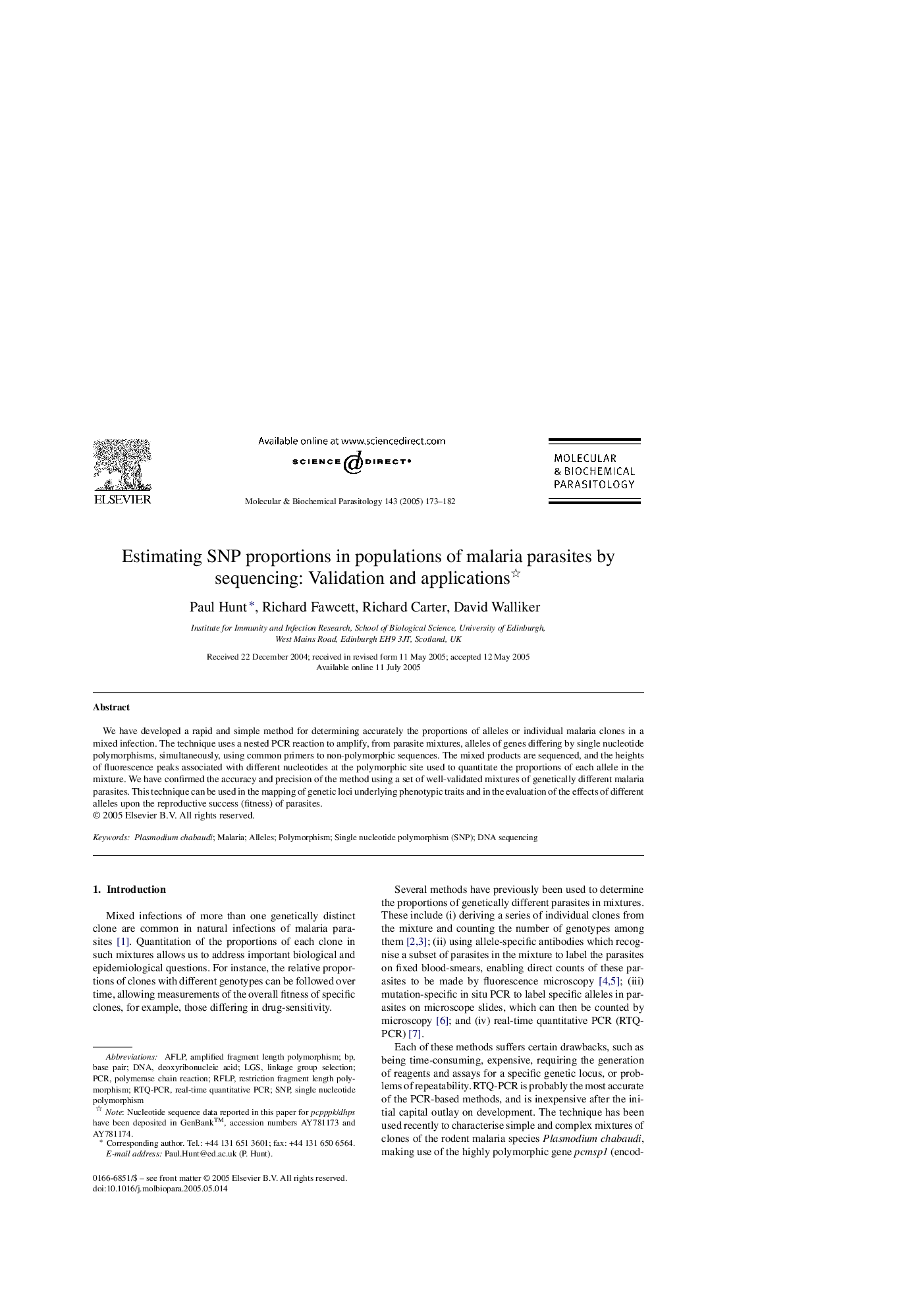| Article ID | Journal | Published Year | Pages | File Type |
|---|---|---|---|---|
| 9139951 | Molecular and Biochemical Parasitology | 2005 | 10 Pages |
Abstract
We have developed a rapid and simple method for determining accurately the proportions of alleles or individual malaria clones in a mixed infection. The technique uses a nested PCR reaction to amplify, from parasite mixtures, alleles of genes differing by single nucleotide polymorphisms, simultaneously, using common primers to non-polymorphic sequences. The mixed products are sequenced, and the heights of fluorescence peaks associated with different nucleotides at the polymorphic site used to quantitate the proportions of each allele in the mixture. We have confirmed the accuracy and precision of the method using a set of well-validated mixtures of genetically different malaria parasites. This technique can be used in the mapping of genetic loci underlying phenotypic traits and in the evaluation of the effects of different alleles upon the reproductive success (fitness) of parasites.
Keywords
RTQ-PCRLGSRFLPAFLPDNAAllelesdeoxyribonucleic acidDNA sequencingbase pairreal-time quantitative PCRMalariapolymerase chain reactionPCRPlasmodium chabaudiPolymorphismAmplified fragment length polymorphismrestriction fragment length polymorphismSingle nucleotide polymorphism (SNP)Single nucleotide polymorphismSNP
Related Topics
Life Sciences
Biochemistry, Genetics and Molecular Biology
Molecular Biology
Authors
Paul Hunt, Richard Fawcett, Richard Carter, David Walliker,
